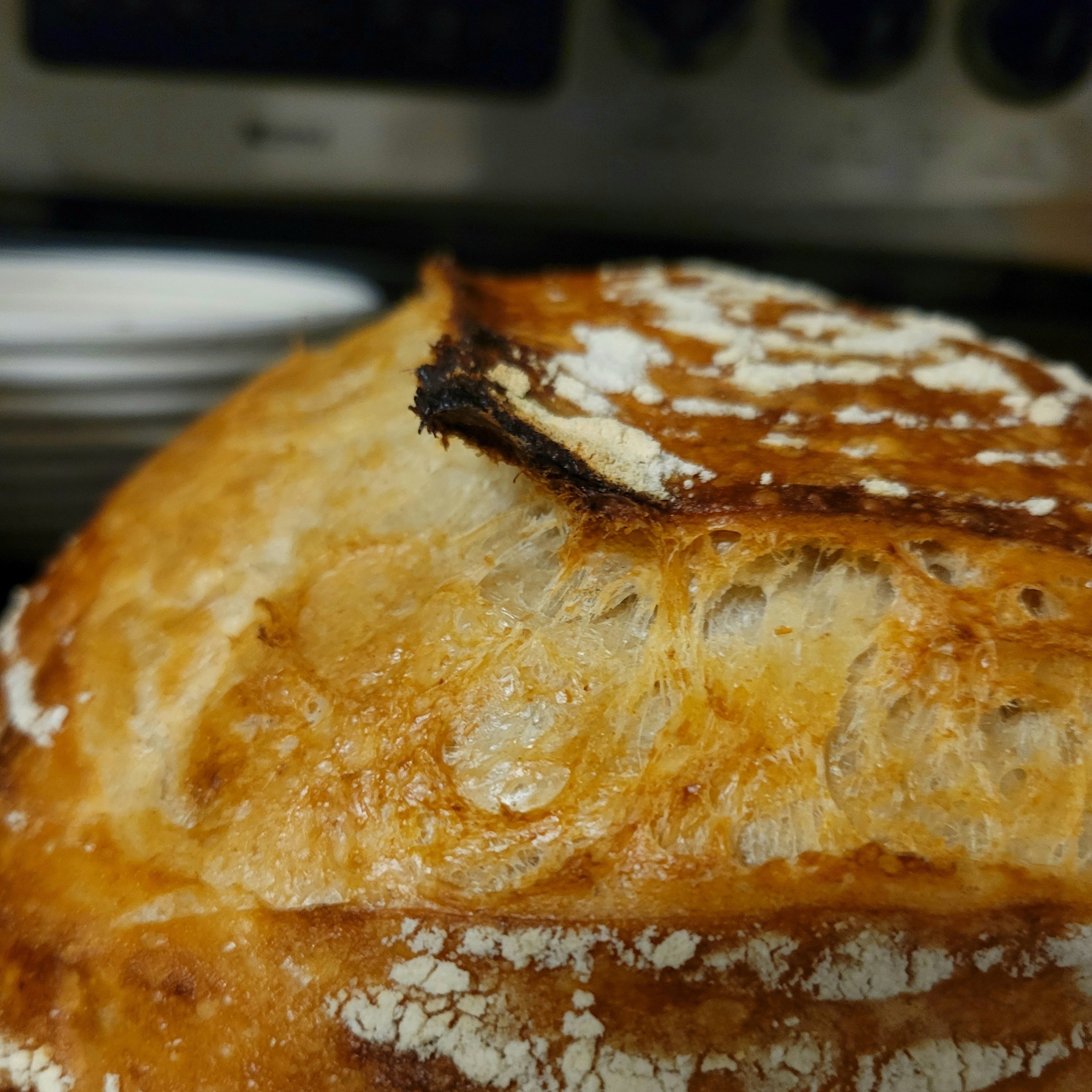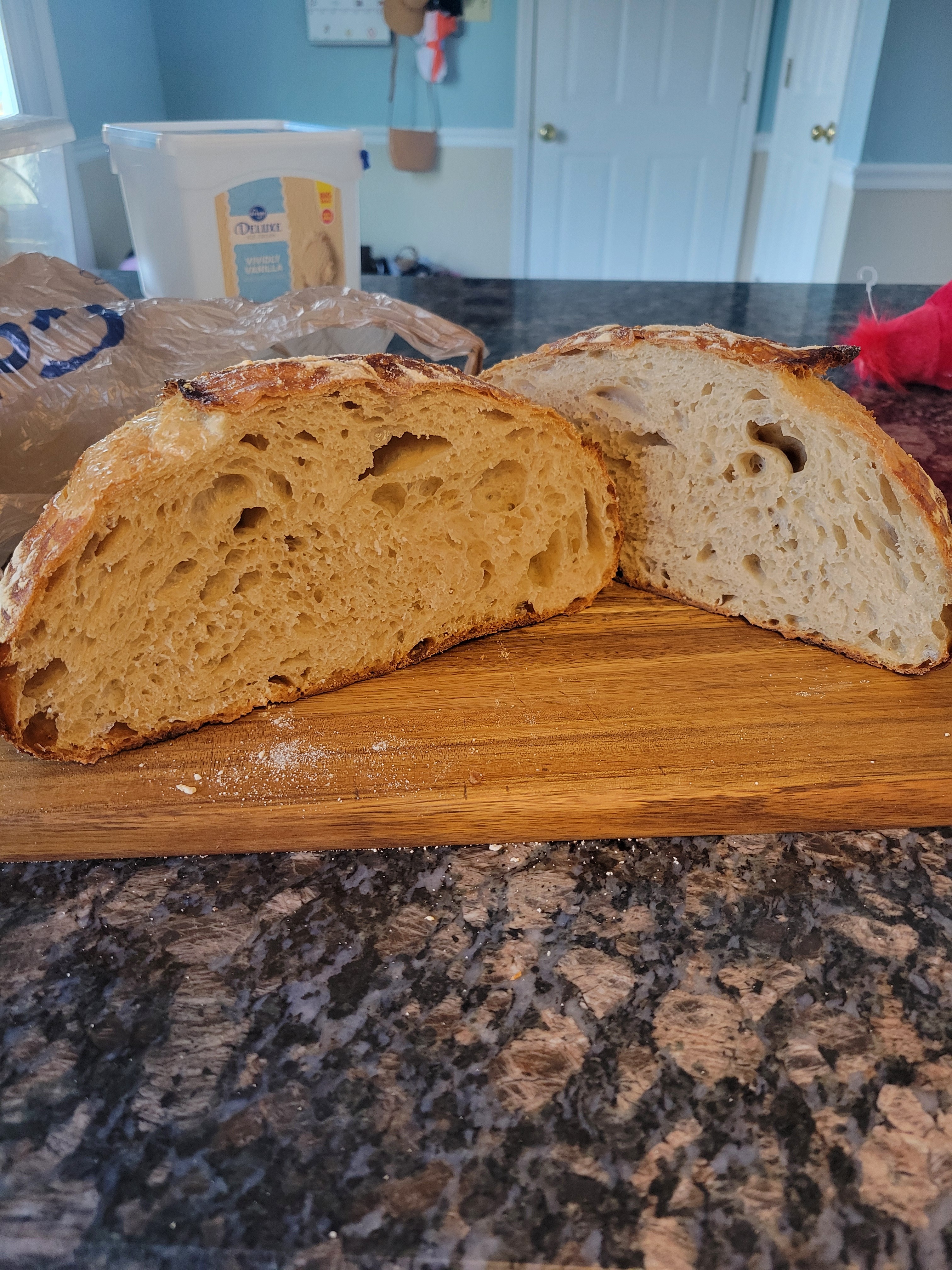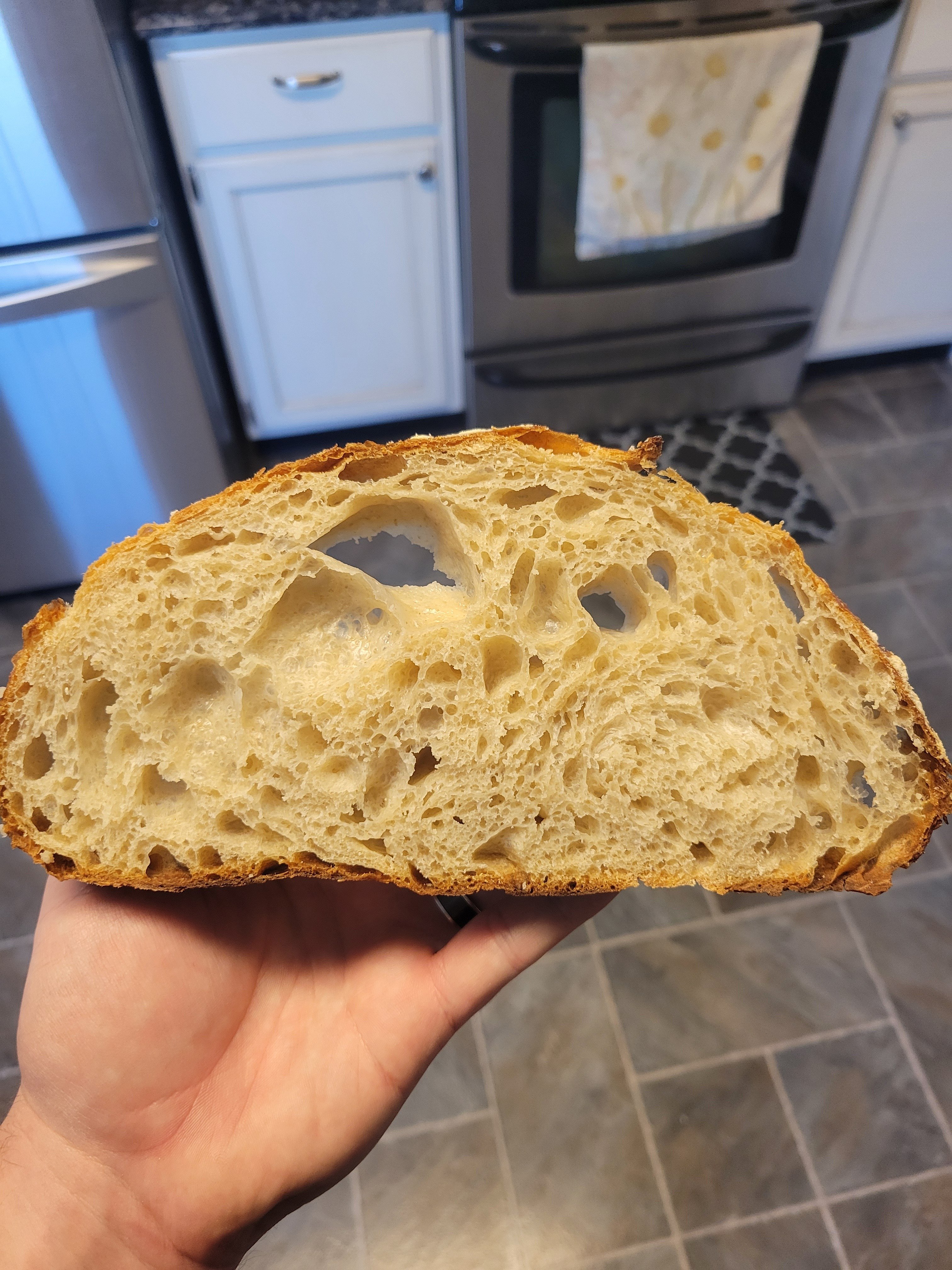Starter
100g starter, 400g water, 300g AP, 100g whole wheat. Put in oven with the light on for ~3 hours. Fed again, about the same numbers, back in the oven for another 3ish hours
Autolyse, 600g water, 700g AP, left that for like two hours.
Final mix, added 20g salt, 1/2tsp yeast, mixed well, then added 300ish grams of starter.
Folded like four times over the first hour, then let the bulk fermentation go a little over, maybe two or three hours in a warm room.
Very gently shaped into boules and put them in the fridge for a few hours until baking.
In a Dutch oven at 500°F with a handful of ice cubes, then out of the Dutch oven for another 20



Not a perfectly distributed crumb, but considering how gassy it was after the bulk ferment ran away, I’m happy with it
Looks great! Why do you call it “sweet”?
The recipe in the book is called that, it’s because feeding the starter twice makes it much, like, softer? Flavor-wise
It’s strange that it doesn’t have sugar in it, like a sweet stiff levain
Yeah, ‘sweet’ is definitely over the top, but it’s hard to convey the specific smell of a young, active, recently fed starter, so I get why he went with it
I’ve never heard of that levain, but my sourdough experience is almost exclusively regular bread
Meaning not sour? I don’t have a good sense of what the 2 feedings should do. A two stage rye sponge creates more acidity then a one, but maybe this isn’t very similar.
Correct, not sour. The starter barely starts to expand when you mix the final dough

